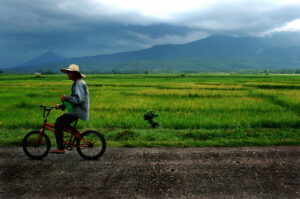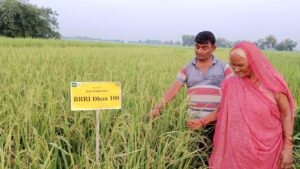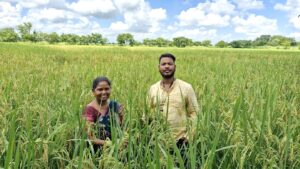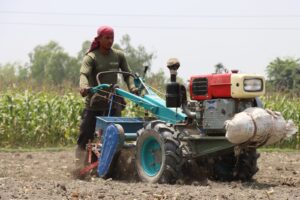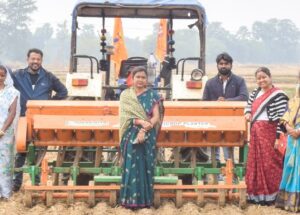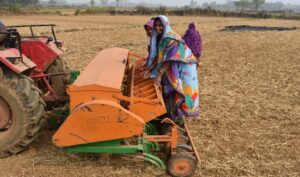
Climate change is on the agenda of many agricultural organizations and experts are drafting battle plans on every front. But what do farmers—the biggest stakeholders in the game—have to say?
About a month after Typhoon Ketsana ravaged Luzon Island in the Philippines (see Drowned harvest), Rice Today went to the town of Morong in Rizal Province to check on a particular rice farmer whose history is tied to the International Rice Research Institute.
Serapio “Mario” San Felipe, now 75, was one of 14 Outstanding Farmer awardees selected by IRRI from 10 countries on the occasion of the Institute’s 25th anniversary in 1985 (see also In the Punjab—an outstanding farmer revisited on pages 34-35 of Rice Today Vol. 8 No. 2). He and his wife, Melba (who died from a stroke in 2002), raised their six children out of the production of their rice farm, which they do not even own.
“Among all those Outstanding Farmers, I was the only one who did not own the land I till,” Mario says, without apologies. “Our children’s education was the priority.”
The 3.8-hectare farm that Mario still tills in a rice-sharing arrangement with the landowner is along the coast of Laguna de Bay (see Google maps), the largest lake in the Philippines. Although the lake is a generous source of irrigation water during the rainy season (May to October), the water level often rises and floods a good part of Mario’s land.
Once in a while, as if monsoon rains are not enough trouble, a typhoon picks up extra moisture from the Pacific and drops sheets of it on the first land masses it touches—more often than not, the islands of the Philippines. Typhoon Ketsana, which struck on 26 September 2009, dumped a month’s worth of rain in just 6 hours. Large parts of Metro Manila and surrounding provinces were inundated. Laguna de Bay overflowed into residential areas and rice fields, including Mario’s, along its coast. In most of these areas, the water did not recede until 2 months later.

Mario concedes that the biggest of his farm management problems are neither pests nor diseases but extreme weather events, which he maintains are nothing new. He recalls three instances over the last 40 years or so during which unusual heavy flooding invariably destroyed much of his rice crop for the season: 1972, 1978, and in September 2009 when Ketsana came and ravaged the country’s ripening rice fields. Records show that similar floods in the region also occurred in 1919, 1934, and 1941.
Despite these extreme events, Mario declares he does not buy the idea of climate change. “These are quirks of climate,” he shrugs. He says that since the climate has never really been constant to begin with, farmers must learn to adapt and adjust to it.
He also remains skeptical of declarations from authorities claiming that the rise in the water level of Laguna de Bay is being caused by the network of fishponds along the coast and squatters’ dwellings built along the channels radiating from the lake—both of which slow down outflow from the lake and impede natural drainage to Manila Bay. “I was born here, and I know how the water behaves,” he insists.
Mario has always tried new technologies from IRRI. He was the first farmer in the Laguna de Bay area to plant IR8 in the mid-1960s and, to this day, he remains loyal to IRRI-bred varieties. Back in 1985 when he was honored at IRRI, he asked IRRI scientists to find a solution to the salinity problem—a major concern of rice farmers around the lake. His face lit up when he learned that IRRI is indeed now field testing its salt-tolerant varieties.
It is for farmers like Mario, as well as others around the world who have felt or are yet to feel the sting of extreme climate events, that IRRI’s stress-tolerant rice varieties (be they for flooding, salinity, or drought) will make a significant impact. The struggle for food security goes on and undoubtedly new constraints to production will come along. But, one thing farmers can bet on is that scientists will continue to do what they can.
______________________________________
Ms. Leah Baroña-Cruz is a writer-editor at IRRIÂ

